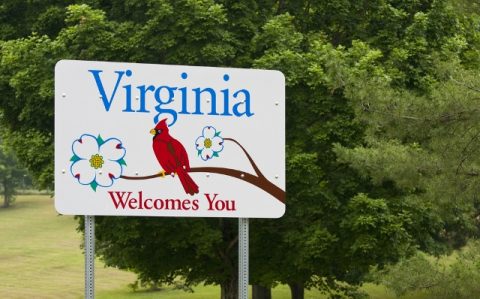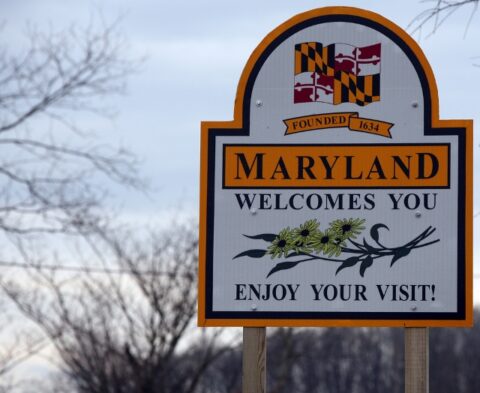Entrepreneurship/Innovation

Immigrants Play Key Role in Virginia’s Economy
Recent state-level immigration battles are often characterized by a great deal of negative attention and not enough positive information about immigrants living in those states. Unfounded claims about the costs of immigration overlook the benefits and contributions immigrants make to American communities. Fortunately, some organizations are dedicated to pushing back on the negativity and publishing accurate data about the role immigrants play in state economies. Read More

A Growing Consensus on Supporting Immigration Reform
Immigration reform is not a “liberal” cause; it is a common-sense cause that appeals to people from a variety of political persuasions. More than a few conservative intellectuals, commentators, politicians, religious leaders, and law-enforcement officials favor revamping the U.S. immigration system to make it more responsive to the economic demands, social realities, and security concerns of the 21st century. This stance represents not only compassion, but enlightened self-interest. A growing body of evidence has quantified the enormous contributions that immigrants make to the U.S. economy through their labor, entrepreneurship, buying power, and innovation. Moreover, demographic trends point clearly to the growing electoral power of naturalized immigrants and to the native-born children of immigrants. In other words, being anti-immigrant in this day and age is self-destructive from both an economic and a political standpoint. Read More

Maryland DREAM Act is a Smart Economic Investment
Education is an investment that yields sizeable dividends over time. Well-educated students go on to become well-educated workers who earn more, pay more in taxes, and are less likely to rely upon public benefits. This is why the DREAM Act, and all of the state-level bills that bear its name, make so much sense. Allowing unauthorized children to graduate from high school and go on to college isn’t simply an act of compassion; it is enlightened self-interest. These children will prove to be far more costly to the state in the long run if they are less educated and living in poverty. Read More

Arizona’s Immigration Policies are an Economic Disaster
Faced with a battered, post-recession economy, lawmakers in Arizona adopted a unique approach to fostering economic recovery; they passed a law that beat down or drove out tens of thousands of the state’s workers, consumers, and taxpayers. The rationale for this counterintuitive action was that the workers, consumers, and taxpayers in question were unauthorized immigrants, and therefore undeserving of support. Some of Arizona’s lawmakers even thought that an exodus of unauthorized immigrants from the state would magically create job openings for unemployed natives. But that’s not how an economy actually works. The unsurprising end result of the attack on unauthorized immigrants has not been recovery, but the shrinking of a state economy that was already contracting. Read More

Immigrant Integration is a Two-Way Street
The process by which immigrants integrate into the economic and social fabric of the United States is very much a two-way street. Naturally, immigrants must harbor the desire to climb the socioeconomic ladder of success. But there must be a ladder for them to climb. If the community within which immigrants live and work makes the collective decision to deprive them of opportunities, then their upward mobility is hindered—to the social and economic detriment of the entire community. Yet, if the community actually welcomes newcomers and helps to facilitate their upward mobility, then the community eventually reaps the rewards of having workers and neighbors who are more highly skilled, more integrated, and more heavily invested in the community itself. Read More

The Economic Advantages of U.S. Citizenship
Becoming a naturalized U.S. citizen has many benefits – citizens can vote and run for public office, bring family members to the U.S., hold certain jobs reserved for citizens, and they are protected from deportation. There are also a range of economic benefits to citizenship, highlighted by the Migration Policy Institute (MPI) in their new report, The Economic Value of Citizenship for Immigrants in the United States. Read More

Immigration Law Curbs Foreign Student Entrepreneurship
Nearly everyone agrees that the U.S. immigration system should provide visas for entrepreneurs who want to start businesses in the U.S. and employ American workers. However, convoluted immigration laws make it difficult for some entrepreneurs to launch their business while they’re in school and remain lawfully in the U.S. after they graduate in order to run them. A new report by the Kauffman Foundation entitled Reforming Immigration Law to Allow More Foreign Student Entrepreneurs to Launch Job-Creating Ventures in the United States describes the obstacles student entrepreneurs’ face. Read More

Immigrant Entrepreneurs are Jet Fuel to the U.S. Economy
The mountain of evidence on the economic importance of immigrant entrepreneurs just keeps growing. Last year, the Partnership for a New American Economy released a report which tallied the number of Fortune 500 companies founded by immigrants (and the children of immigrants). Last month, the Fiscal Policy Institute issued a report which quantified the economic value of immigrant small businesses. And now, the Partnership for a New American Economy has put out another report demonstrating the scale of the economic contributions made by immigrant business owners. As the report points out, “in addition to creating jobs, the businesses that immigrants start also create revenue to boost our GDP, exports to alleviate our trade imbalance, taxes to fund our deficit, and new consumption that fuels our economy.” Read More

New Brookings Report Examines Demand for H-1B High Skilled Worker Visas
Who uses H-1Bs and for what types of jobs is a topic of constant debate in Congress and in communities across the country. The Brookings Institute recently released a new report mapping H-1B workers in the U.S which addresses some of these questions and sheds new light on the topic. The H-1B program allows employers to hire foreign workers in specialty occupations for a temporary period of time. Currently, H-1Bs for for-profit employers are capped at 65,000 per year, with an additional 20,000 visas for workers with advanced degrees from U.S. universities. Research, non-profit, and government organizations can also request H-1B workers, and those visas are uncapped. Read More

Immigrant-Owned Small Businesses Contribute More to Economy Than You’d Think
In the never-ending debate over the impact that immigration has on the U.S. economy, the role of immigrant small businesses usually goes unnoticed. While mention is sometimes made of the fact that two in five Fortune 500 companies were founded by immigrants, the little businesses—the majority that employ under 100 people—are often forgotten. In large part, this is due to the absence of basic data on the subject. However, a new report from the Fiscal Policy Institute (FPI) finally quantifies the value of immigrant small businesses to the U.S. economy. Read More
Make a contribution
Make a direct impact on the lives of immigrants.
